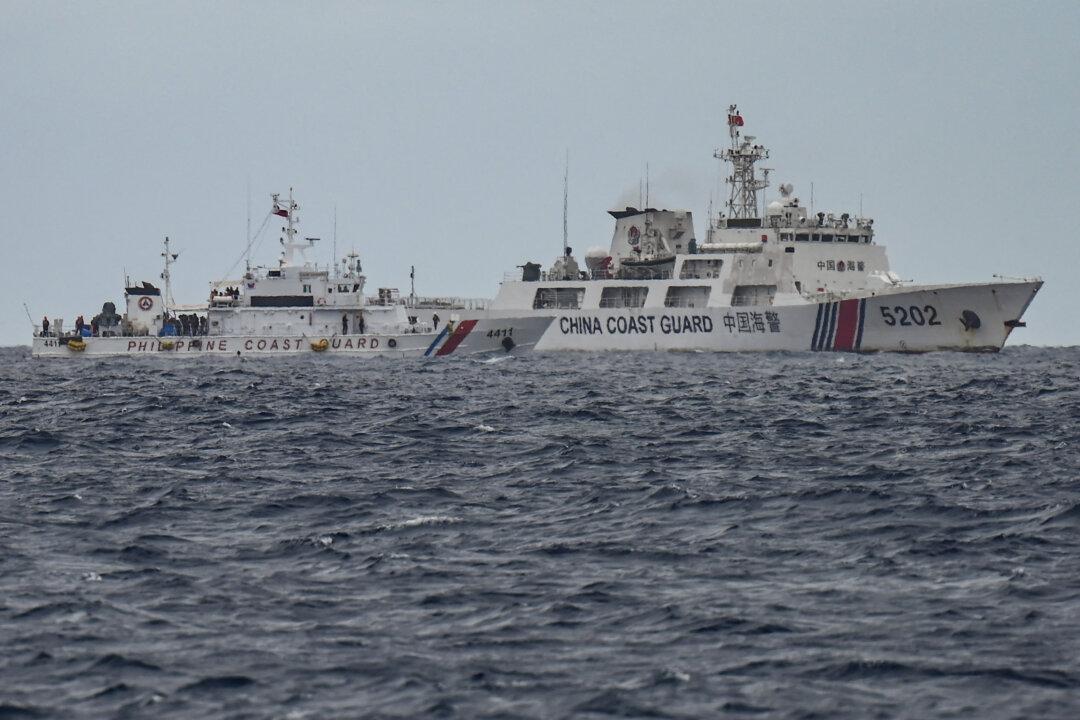Top U.S. and Chinese military leaders in the Indo-Pacific held a video conference on Sept. 10, the two sides confirmed, as Washington seeks to maintain communication with Beijing amid intensified regional tensions in the South China Sea and beyond.
Adm. Samuel Paparo, commander of the U.S. Indo-Pacific Command, spoke virtually with his Chinese counterpart, Gen. Wu Yanan, commander of the Chinese military’s Southern Theater Command, on Sept. 9 (Sept. 10 in China), according to statements from each side. It was the first such meeting in more than two years.
The Southern Theater Command of China’s People’s Liberation Army (PLA) is responsible for overseeing operations in the regions claimed by Beijing in the South China Sea, a crucial waterway through which flows an estimated one third of global shipping traffic.
The U.S. Indo-Pacific Command’s areas of responsibility encompass not only the South China Sea but also the Taiwan Strait. The areas have become continual flashpoints between U.S. and Chinese militaries because of the aggressive actions of the Chinese Communist Party (CCP) in pursuing its sovereign claims.
During the teleconference with Wu, Paparo stressed “the importance of sustained lines of communication” between the two militaries, saying that dialogue among senior military leaders helps to “clarify intent and reduce the risk of misperception or miscalculation,” according to the U.S. military’s statement.
The Chinese Defense Ministry also confirmed the call. In a brief online statement, the ministry stated that Wu had “in-depth exchanges of views” with Paparo, delving into “issues of common concern.”
The U.S. Indo-Pacific command characterized the conversation as “constructive and respectful.”
Paparo cited the Chinese military’s recent “unsafe interactions with U.S. allies” and reminded Beijing of its “obligation to comply with international laws and norms to ensure operational safety,” according to the statement.
He also urged the PLA “to reconsider its use of dangerous, coercive, and potentially escalatory tactics in the South China Sea and beyond,” the statement reads.
The high-level military dialogue follows a visit by U.S. national security adviser Jake Sullivan to Beijing last month. After meeting with the CCP’s top leader, Xi Jinping, and Gen. Zhang Youxia, vice chairman of China’s Central Military Commission, Sullivan said the two sides had agreed to a call between their military commanders in the Indo-Pacific region.
“We are going to look for a deepening of the military-to-military communication so that we can pass that on to President Biden’s successor,” Sullivan told reporters before departing Beijing.
South China Sea Tensions
Tensions have been escalating in the South China Sea in recent months, after multiple confrontations between ships from China and the Philippines.
In one recent example, on Aug. 26, the CCP deployed 40 vessels to block two Philippines ships delivering vital food and supplies to crewmen stationed on a patrol vessel in the Escoda Shoal (also known as the Sabina Shoal). A few days later, on Aug. 31, Chinese forces surrounded and rammed the patrol vessel, causing damage to its hull.
According to international law, the Escoda Shoal lies within the Philippines’ 200-nautical-mile exclusive economic zone. The disputed atoll, claimed by Beijing as Xianbin Reef, is located approximately 75 nautical miles west of the island province of Palawan in the Philippines and more than eight times that distance from Hainan, which is the closest Chinese island province.
In a landmark 2016 case, an international tribunal ruled that the CCP’s expansive claims in the South China Sea have no basis.
The CCP rejected the ruling by the Permanent Court of Arbitration in The Hague and adopted its own maritime legislation, granting power to its coast guard to detain foreigners who enter waters it claims for up to 60 days.




